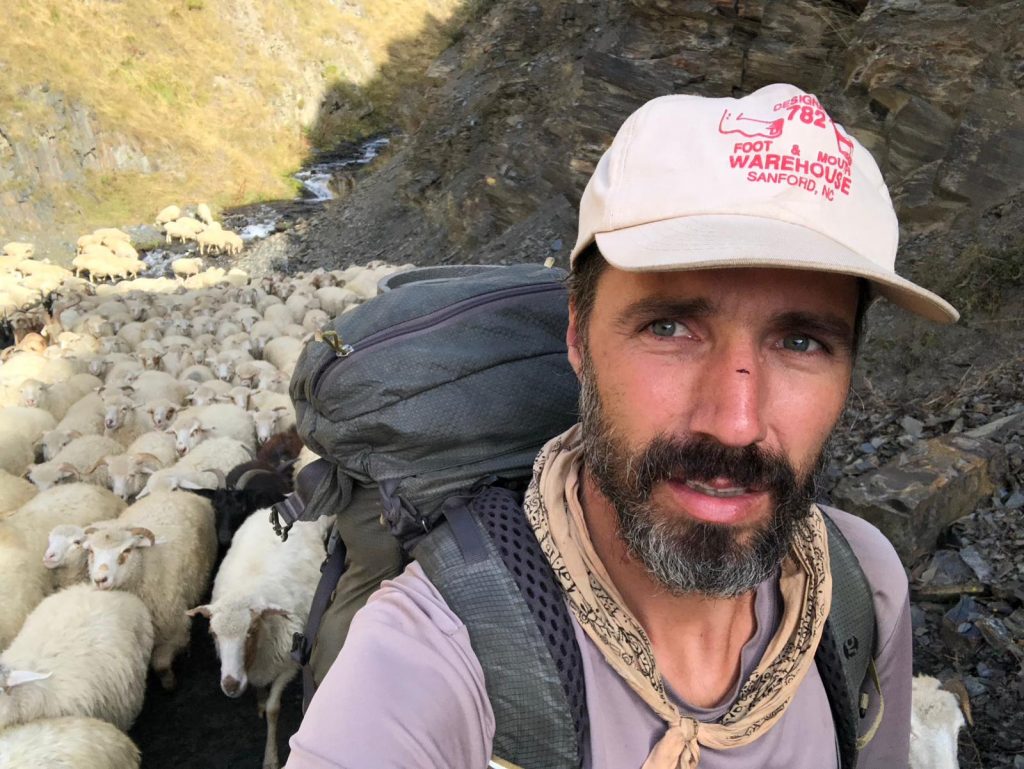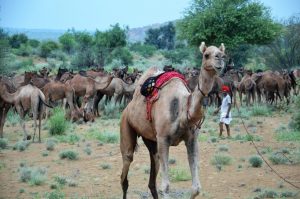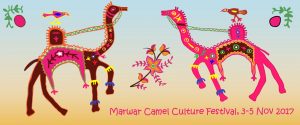 |
The Conference of Parties (COP 9) of the UN Convention on Biological Diversity will held in Bonn, Germany, from 19 to 23 May 2008. Article 10c of the Convention commits signatory countries to protect and encourage customary use of biological resources in accordance with traditional cultural practices that are compatible with conservation and sustainable use requirements. Many traditional pastoralist communities would qualify for support from their governments. Alas, in reality, they are generally ignored or scorned upon by policy makers. During the COP 9, the parties will discuss progress in the implementation of the convention. Three members of LPPS will use this opportunity to lobby for an official acknowledgment of the role of pastoralists in conserving various aspects of biodiversity, including those of domestic animals, certain wild plants and animals, as well as landscapes. LPPS and its German partner, the League for Pastoral Peoples and Endogenous Livestock Development, have gained allies among German shepherds who often get paid to graze their sheep on certain land, so maintaining the biodiversity there. Another strong supporter is the LIFE Network for community-based conservation of animal genetic resources. View the report on LPPS’s interaction with European pastoralists in September 2007. |
 |
An international seminar on The Camel in Rajasthan: From Heirloom to Unique Selling Point will be held in Jaipur on 7-8 April 2008. International and Indian camel experts and Rajasthan camel breeders will discuss ways to promote camel husbandry in Rajasthan. The seminar will address two themes: developing the dairy potential of camels, and a strategy for making Rajasthan camel-friendly. The seminar will take place at the Hotel Jai Mahal, Ajmer Road, Jaipur. It is organized by Lokhit Pashu-Palak Sansthan (LPPS) with support from the Ford Foundation. More information
LPPS head office: tel. 02934-285086, mobile 9414818564, email lpps@sify.com Jaisalmer office: tel. 02992-250652, 254452, email camelherds@yahoo.co.in |
 |
The first issue of News from Drynet contains two articles by LPPS. In one, LPPS’s Namitha Dipak interviews Dr Mannava VK Sivakumar, Chief of the Agrometeorology Division of the World Meteorological Organisation. Dr Sivakumar stressed the need for effective extension services to advise farmers about weather forecasts, and to develop local efforts to mitigate the effects of climate change. Another article features a visit by a Raika delegation to Europe, where they pressed for recognition of the role of pastoralists in developing and conserving livestock breeds at international conferences in Switzerland and Spain. The delegation also visited a goat dairy and organic farm in Germany and a sheep-rearing area high in the Alps of Switzerland. A further article in the newsletter, by Ilse Koehler-Rollefson of LPPS partner organization the League for Pastoral Peoples and Endogenous Livestock Development, stresses the need to reward pastoralists for their environmental services. “Scientific programmes to increase drought resistance of organisms are funded with millions of dollars,” says Ilse. “Yet the day-to-day efforts of pastoralists to keep and develop animals under drought conditions and thereby sustain crucial gene pools – that will prove priceless during climate change – remain entirely unrewarded.” The Drynet project, funded by the European Union, involves 14 partner organizations around the world. LPPS is responsible for producing a regional edition of the newsletter for South Asia. Download newsletter |
|
LPP’s Ilse Koehler-Rollefson (right) discusses with Rajasthan Chief Minister Vasundhra Raje Vasundhra Raje promises support for camels Thousands of Raika commemorated the death of Bhopala Ram Raika |
11 January 2008 was the first death anniversary of Bhopala Ram Raika, a famous leader of the Raika camel pastoralists of Rajasthan. Thousands of Raika gathered to mark the event, with Vasundhra Raje, Chief Minister of Rajasthan, as guest of honour. Ilse Koehler-Rollefson of the League for Pastoral Peoples and Endogenous Livestock Development, and Hanwant Singh, director of Lokhit Pashu-Palak Sansthan, also attended. Ilse was invited to give a speech to the political dignitaries and a crowd of Raika estimated at 5000-7000 people. She recalled that Bhopala Ram Raika had introduced her to the Raika community in 1992, laying the foundation of LPP’s and LPPS’s work in Rajasthan. LPP later invited him to an international meeting in Tanzania and a tour of a camel farm and dairy in Kenya. Hanwant and Ilse had the opportunity to meet the chief minister and brief her about the needs of camel pastoralists in the state. During her speech, the Chief Minister held up a copy of a Drynet newsletter with an article about a visit by a Raika delegation to Switzerland and Spain. Their visit had been arranged by LPP and LPPS as part of efforts to promote the rights of livestock keepers. The newsletter is part of LPPS’s contribution to the European Union-funded Drynet project, a worldwide initiative to combat land degradation. “This is how far the Raika can go”, she said, promising support for camels, which are iconic animals in Rajasthan. The following day, the Rajasthan Patrika newspaper carried a special article in Hindi about the state government’s commitment to save the camel. More information |
 |
“For the camel breeders from Jojawar, this year’s trek to the Pushkar fair with their young camels could be their last one,” says an article in the Indian magazine Tehelka. “However, there is hope”, continues the article by Ilse Koehler-Rollefson of LPPS’s partner, the League for Pastoral Peoples and Endogenous Livestock Development. The article describes an LPPS project to revive camel husbandry by promoting value-added camel products such as milk and ice cream. “Camel milk ice cream sold like hot cakes at the Pushkar Fair, proving popular with both Indians and foreign tourists,” the article quotes LPPS director Hanwant Singh Rathore. Camel numbers in parts of Rajasthan have stabilized after decline, says Ilse. The rising price of fuel may have something to do with this: French research has found that farmers are now buying camels instead of tractors for ploughing and transport. The article appeared in the 22 December 2007 issue of Tehelka. Download full article |









